Peugeot 308 vs Renault Mégane - Differences and prices compared
Compare performance (195 HP vs 218 HP), boot space and price (29200 £ vs 35100 £ ) at a glance. Find out which car is the better choice for you – Peugeot 308 or Renault Mégane?
Costs and Efficiency:
When it comes to price and running costs, the biggest differences usually appear. This is often where you see which car fits your budget better in the long run.
Peugeot 308 has a somewhat advantage in terms of price – it starts at 29200 £ , while the Renault Mégane costs 35100 £ . That’s a price difference of around 5820 £.
In terms of energy consumption, the advantage goes to the Renault Mégane: with 15.40 kWh per 100 km, it’s hardly perceptible more efficient than the Peugeot 308 with 15.60 kWh. That’s a difference of about 0.20 kWh.
As for electric range, the Renault Mégane performs slight better – achieving up to 452 km, about 2 km more than the Peugeot 308.
Engine and Performance:
Power, torque and acceleration say a lot about how a car feels on the road. This is where you see which model delivers more driving dynamics.
When it comes to engine power, the Renault Mégane has a somewhat edge – offering 218 HP compared to 195 HP. That’s roughly 23 HP more horsepower.
In acceleration from 0 to 100 km/h, the Renault Mégane is barely noticeable quicker – completing the sprint in 7.40 s, while the Peugeot 308 takes 7.60 s. That’s about 0.20 s faster.
In terms of top speed, the Peugeot 308 performs noticeable better – reaching 225 km/h, while the Renault Mégane tops out at 160 km/h. The difference is around 65 km/h.
Both models offer the same torque – 300 Nm.
Space and Everyday Use:
Beyond pure performance, interior space and usability matter most in daily life. This is where you see which car is more practical and versatile.
Both vehicles offer seating for 5 people.
In curb weight, Peugeot 308 is somewhat lighter – 1453 kg compared to 1719 kg. The difference is around 266 kg.
In terms of boot space, the Peugeot 308 offers slight more room – 412 L compared to 389 L. That’s a difference of about 23 L.
In maximum load capacity, the Renault Mégane performs slight better – up to 1332 L, which is about 9 L more than the Peugeot 308.
When it comes to payload, Peugeot 308 slightly takes the win – 503 kg compared to 446 kg. That’s a difference of about 57 kg.
Who wins the race in the data check?
The Peugeot 308 is clearly ahead overall in the objective data comparison.
This result only shows which model scores more points on paper – not which of the two cars feels right for you.
Costs and Consumption
View detailed analysis
Engine and Performance
View detailed analysis
Dimensions and Body
View detailed analysis
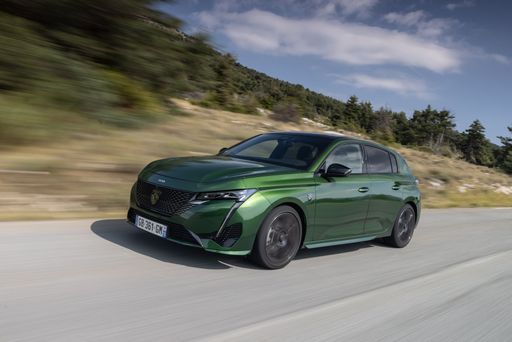
Peugeot 308
Peugeot 308
The Peugeot 308 brings a sleek, feline profile and an unexpectedly upscale cabin, with clever packaging and materials that feel a touch more premium than you might expect. It’s composed on the road, easy to live with for daily life, and a smart choice if you want a stylish hatch that still behaves when the road gets interesting.
details
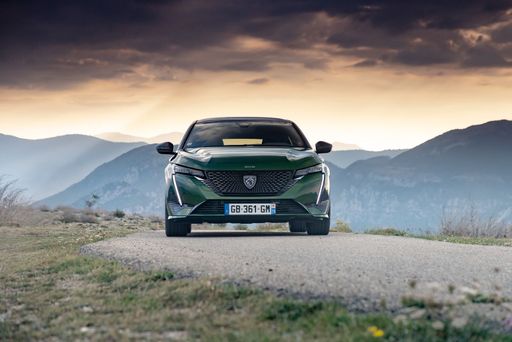
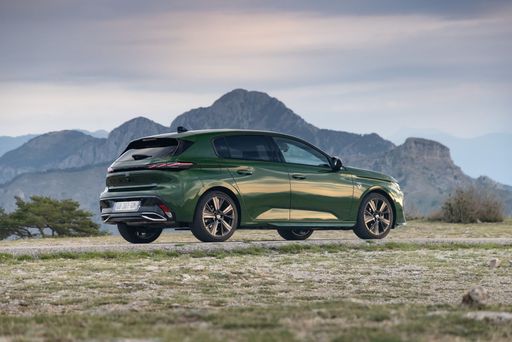
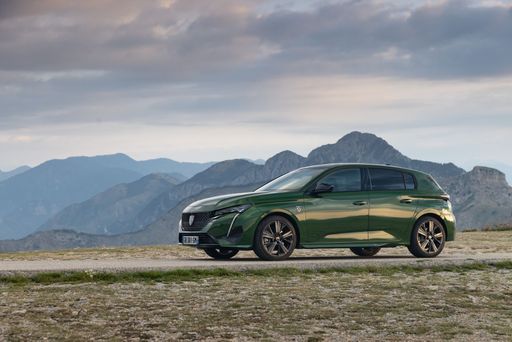
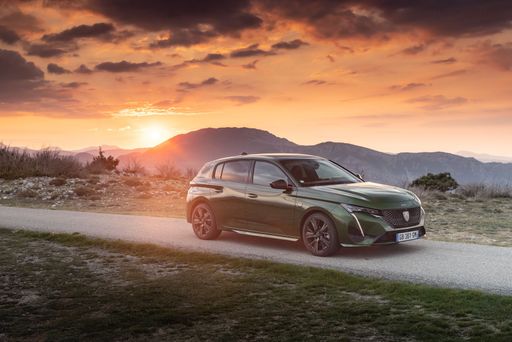
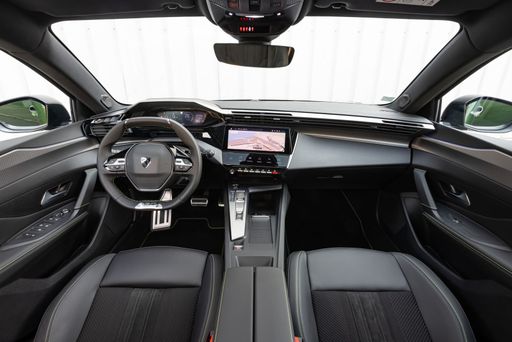
Renault Mégane
The Renault Mégane blends Gallic flair with practical everyday charm, showing that sensible transport can still have personality and poise. It’s a smart pick for buyers who want a comfortable, stylish hatchback that feels a little more special than the usual commute companion.
details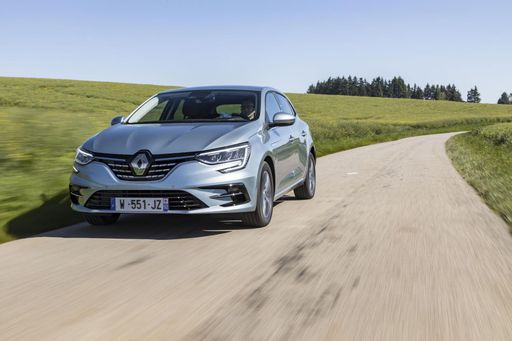
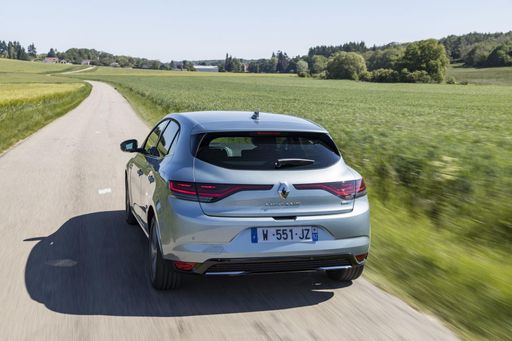
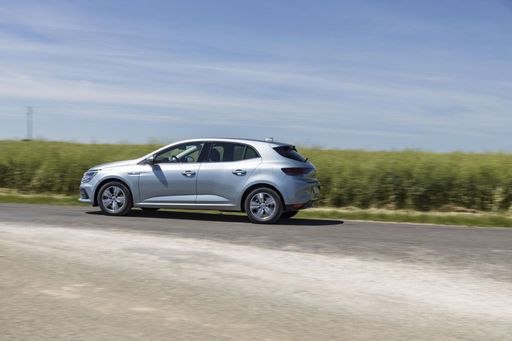
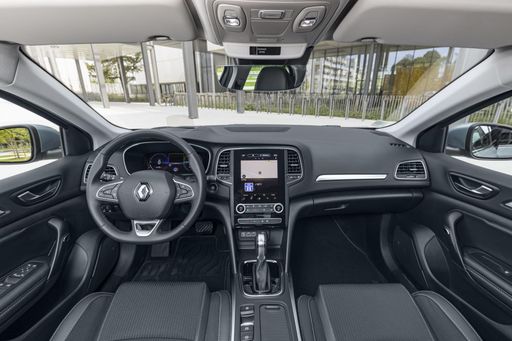
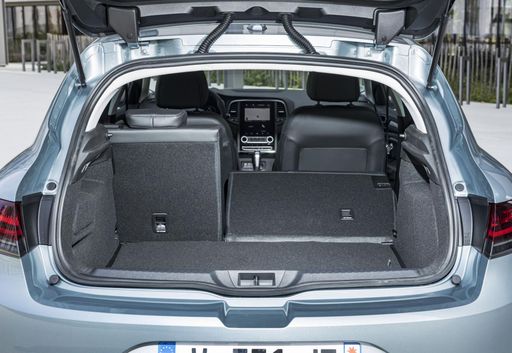
Costs and Consumption |
|
|---|---|
|
Price
29200 - 42600 £
|
Price
35100 - 38500 £
|
|
Consumption L/100km
2.3 - 5 L
|
Consumption L/100km
-
|
|
Consumption kWh/100km
15.60 kWh
|
Consumption kWh/100km
15.40 kWh
|
|
Electric Range
78 - 450 km
|
Electric Range
452 km
|
|
Battery Capacity
0.40 kWh
|
Battery Capacity
-
|
|
co2
0 - 129 g/km
|
co2
0 g/km
|
|
Fuel tank capacity
42 - 52 L
|
Fuel tank capacity
-
|
Dimensions and Body |
|
|---|---|
|
Body Type
Hatchback
|
Body Type
SUV
|
|
Seats
5
|
Seats
5
|
|
Doors
5
|
Doors
5
|
|
Curb weight
1453 - 1749 kg
|
Curb weight
1719 kg
|
|
Trunk capacity
314 - 412 L
|
Trunk capacity
389 L
|
|
Length
4367 mm
|
Length
4200 mm
|
|
Width
1852 mm
|
Width
1783 mm
|
|
Height
1438 mm
|
Height
1505 mm
|
|
Max trunk capacity
1258 - 1323 L
|
Max trunk capacity
1332 L
|
|
Payload
430 - 503 kg
|
Payload
446 kg
|
Engine and Performance |
|
|---|---|
|
Engine Type
Petrol MHEV, Diesel, Plugin Hybrid, Electric
|
Engine Type
Electric
|
|
Transmission
Automatic
|
Transmission
Automatic
|
|
Transmission Detail
Dual-Clutch Automatic, Automatic Gearbox, Reduction Gearbox
|
Transmission Detail
Reduction Gearbox
|
|
Drive Type
Front-Wheel Drive
|
Drive Type
Front-Wheel Drive
|
|
Power HP
131 - 195 HP
|
Power HP
218 HP
|
|
Acceleration 0-100km/h
7.6 - 10.6 s
|
Acceleration 0-100km/h
7.40 s
|
|
Max Speed
170 - 225 km/h
|
Max Speed
160 km/h
|
|
Torque
230 - 300 Nm
|
Torque
300 Nm
|
|
Number of Cylinders
3 - 4
|
Number of Cylinders
-
|
|
Power kW
96 - 144 kW
|
Power kW
160 kW
|
|
Engine capacity
1199 - 1598 cm3
|
Engine capacity
-
|
General |
|
|---|---|
|
Model Year
2025
|
Model Year
2025
|
|
CO2 Efficiency Class
C, D, B, A
|
CO2 Efficiency Class
A
|
|
Brand
Peugeot
|
Brand
Renault
|
Is the Peugeot 308 offered with different drivetrains?
Available configurations include Front-Wheel Drive.




